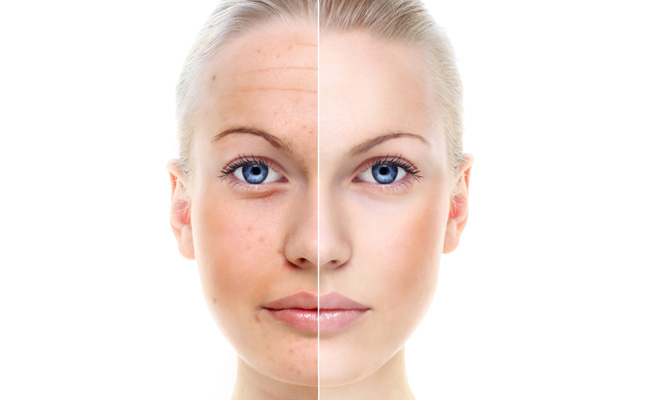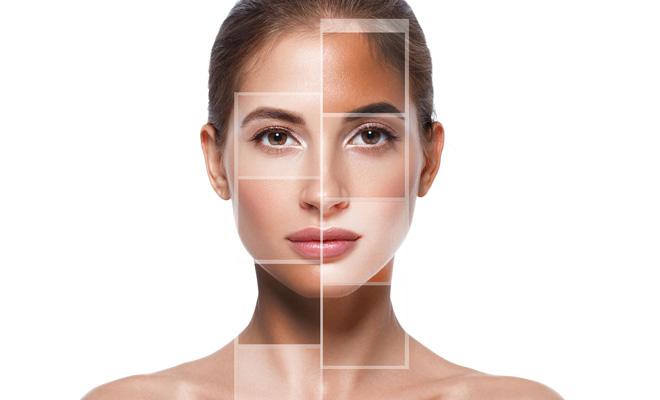There is a wide variety of skin issues.
Among the most problematic is skin discoloration, which becomes even more disturbing when the patches are severely different from your natural skin tone.
If this is your skin issue, take the time to read these five facts about skin discoloration before you start seeking treatments and remedies:
Fact No. 1: There Are Several Causes Of Skin Discoloration

Causes Of Skin Discoloration – Image/Shutterstock
The most prevalent one is sun damage.
Other causes include age, taking certain medications including birth control pills and antibiotics, hormonal changes most especially during pregnancy and menopause, and skin injuries.
There are generally two types of skin discoloration: Hyper-pigmentation, or the darkening of the skin, and hypo-pigmentation.
The reduction in melanin content of the skin causes the skin to become lighter than the natural skin tone.
Each may involve the epidermis only or a part of the dermis.
Both conditions can be treated depending on the underlying causes.
I’m a Big Believer In That If You Focus On the Best Skincare, You Really Won’t Need a Lot Of Make-Up.
Fact No. 2: Skin Discoloration Among Darker Skinned Individuals Are Harder To Treat
Typically, those who have darker skin tones are advised to be extra careful when using bleaching and whitening products.
That’s because when their melanocytes become damaged, their natural skin pigment is lost.
Lighter-skinned individuals having skin discoloration problems are generally easier to treat.
Therapies often include spot-correcting creams.
Fact No. 3: There Are Several Levels For Treating Skin Discoloration

Treating Skin Discoloration – Image/Shutterstock
As the condition is most frequently brought about by excessive sun exposure, the first course of treatment is to protect the skin from further sun damage.
As a first line of treatment, people suffering from hyperpigmentation[1] are prescribed a cream that contain retinol or hydroquinone (in US and where it isn’t already banned).
These creams work by blocking the production of melanin, thereby lightening the skin tone.
In the case of hypopigmentation, skin is treated accordingly with the causes of skin discoloration.
For instance, those with fungal causes are prescribed an antifungal cream.
Fact No. 4: A Number Of Clinic-Based Treatments Are Available To Treat Skin Discoloration
Depending on the advice of a skincare specialist, often considering the depth and area of damage on the skin, hyperpigmentation and hypopigmentation may be treated with chemical peels, microdermabrasion.
Intensed Pulsed Light laser treatment, and fractionated laser therapies[2].
Fact No. 5: Skin Discoloration May Also Be Caused Be a Symptom Of or Result From More Serious Diseases

Symptom Of or Result From More Serious Diseases – Image/Shutterstock
Addison disease and other endocrine diseases, hemochromatosis, and lupus may all result in skin discoloration.
At times, skin diseases such as vitiligo or genetic disorders such as albinism, can also cause abnormalities in skin pigmentation.
FAQ’s:
Que: What is pigmentation disorder?
Ans: A skin pigmentation disorder is a health condition that affects the color of the skin.
Que: What are the causes of Skin pigmentation?
Ans: Causes of hyperpigmentation include:
- Use of certain drugs (such as minocycline, certain cancer chemotherapies, and birth control pills)
- Hormone system diseases such as Addison disease
- Hemochromatosis
- Sun exposure
- Skin inflammation
Que: What causes Skin discoloration on face?
Ans: Sunspots, vitiligo, , birthmarks, infections, and melasma can all cause skin discoloration on face.
Que: What are the types of skin pigmentation disorders?
Ans: Abnormal Pigmentation, Birthmarks and other pigmentation disorders affect many people. Some of the most common are pigmented birthmarks, macular stains, hemangiomas, port-wine stains.
Conclusion
“I’m a big believer in that if you focus on good skin care, you really won’t need a lot of make-up,” Demi Moore said.
Take the first step to prevent skin discoloration in the first place by never leaving the shade without sunscreen.
If skin discoloration is bothering you so much then take the next step to improve your skin condition right now.
Like this post? There’s more. Get tons of beauty tips, tutorials, and news on the thebeautyinsiders Facebook & Twitter page. Like us on Facebook – we’ll see you there!
 By Wendy Gould
By Wendy Gould





